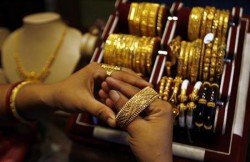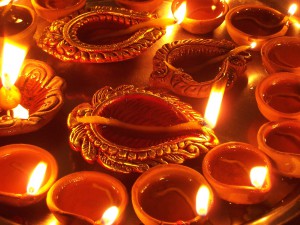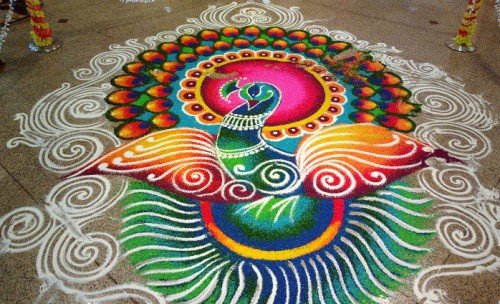If you’re a blur sotong like me (not literally, of course), you might have been confused by what is the actual day of our Deepavali public holiday this year. Some calendars showed that it was on the 11th of November, while others marked the 10th of November as Deepavali. Thankfully, this small dilemma has been cleared up by now, and I’m here to share with you some interesting things that (as a non-Hindu) you may not know about the Festival of Lights.
In Malaysia, Deepavali is also sometimes referred to as Diwali, with both terms being used interchangeably. However, many are are not aware that both are slightly different, depending on which part of India or country you live in.
Deepavali or Diwali this year is rather unique, as they fall on different days according to the Hindu lunisolar calendar, unlike previous (and coming) years. This has resulted in Deepavali being on the 10th of November, and Diwali celebrated on the 11th of November.
Now that we’ve cleared up the matter of the difference between Deepavali and Diwali, here are 8 other things you should know about this ancient Hindu festival.
#1 – The meaning of Deepavali
Deepavali is celebrated to signify the triumph of good over evil, and light over darkness. During Deepavali people pray to Lakshmi, goddess of wealth, light, prosperity and wisdom, but also to Ganesha, the ‘Remover of Obstacles’ and the ‘Lord of Beginnings’.
The story is chronicled in the Hindu Sanskrit epic Ramayana, but it’s way too long to so here’s the short version: An evil king, Ravana, kidnaps king Rama’s wife Sita and holds her captive in Sri Lanka. Rama defeats Ravana and rescues his wife, and returns triumphant to his capital. Rows of lamps were used to welcome them home, which is why families light them during Deepavali, and the reason it is also known as the Festival of Lights.
#2 – Customs and traditions
Similar to Hari Raya and Chinese New Year, before Deepavali, people clean, renovate, and decorate their homes and offices to prepare for the celebration and festivities. Hindus dress up in new clothes or their best outfit, light up diyas (lamps and candles) inside and outside their home, participate in family puja (prayers) and light fireworks in the evening. A family feast follows, which includes delicious Indian cuisine and mithai (sweets), and an exchange of gifts between family members and close friends. Starting the first day of Deepavali with an oil bath is also a good omen, as it is believed to be equivalent to having a dip in the Ganges. It is customary for family elders to bless their children by applying gingelly oil on their heads before the bath.
 #3 – Sweet treats galore
#3 – Sweet treats galore
Just like how there are loads of biscuits and kuihs to indulge in during Chinese New Year and Hari Raya, sweet treats also play a big part of Deepavali celebrations. Since it’s a celebratory festival, these mithai (little morsels that are a cross between snack, dessert and sweet) offered during this time hold significant meaning and tend to be nothing short of indulgent. The laddu, for example, is associated with Lord Ganesha who holds the sweet in his trunk. Eating this sweet symbolises the ushering of prosperity. A lot of khoya or mawa – which is basically concentrated sweet milk – sugar and ingredients like saffron, cardamom and silver leaf are used to make mithai.
#4 – Don’t step on that kolam!
I know sounds rather dramatic, but honestly, don’t do it. Our fellow Hindus spend a lot of time making the kolam (also known as rangoli) patterns on the floor, which are often seen in shopping malls or homes during the festive season, so it would be a shame, not to mention disrespectful, to ruin them. These beautiful and intricate kolams are drawn using coloured flour, chalk powder, or rice grains are thought to bring prosperity to homes, and a sign of invitation to welcome all into the home, not the least of whom is Lakshmi, the goddess of prosperity and wealth.
#5 – Days of festivities
Deepavali is usually celebrated over four or five days, during which families gather to perform puja (prayers), get together and visit relatives and friends, exchange presents, and enjoy delicious food.
 #6 – All that glitters
#6 – All that glitters
It comes as no surprise that gold is a hot commodity to all races in Malaysia, especially during the festive season, and Deepavali is no exception. Besides being a symbol of wealth and prosperity, the first day of Deepavali is considered an auspicious day to buy and wear gold. However, the attraction of bright, colourful and shiny things is not limited to the precious metal. New clothes, often in bright colours, are worn for the occasion, which are believed to bring good fortune and prosperity. Sarees, Punjabi suits and lenghas now come adorned with lots of bling, adding to the festive theme. A gentle reminder: avoid black and dark blue as they are considered inauspicious colours.
#7 – A time for giving
People are always more generous and charitable during the festive seasons, don’t you think? For Hindus, Deepavali is seen as a special time for spiritual advancement. It is believed that individuals who give food to the poor or care for the less fortunate will be doubly blessed. It is not surprising to find many people visiting temples to worship and donate money, food or items for a good cause during this time. It is important to remember to give within your means, and to do good deeds even when it is not the festive season. 😉
#8 – Going vegetarian
During Deepavali, it is good to abstain from meat. Adopting a vegetarian diet – even if it is just for a few days – is believed to bring about mercy in the heart. There is strong belief that happiness is directly correlated with respect and preservation of life. Plus, eating healthy will help to cleanse your system! 😛
Happy Deepavali from all of us at Estate123!
Source
Deepavali.net (link)
Khaleej Times (link)
Star Metro (link)
Wikipedia (link)








![[Video] Majestic Maxim @ Cheras – Facilities Tour](https://insight.estate123.com/wp-content/uploads/2023/05/Majestic-Maxim-header-440x264.jpg)